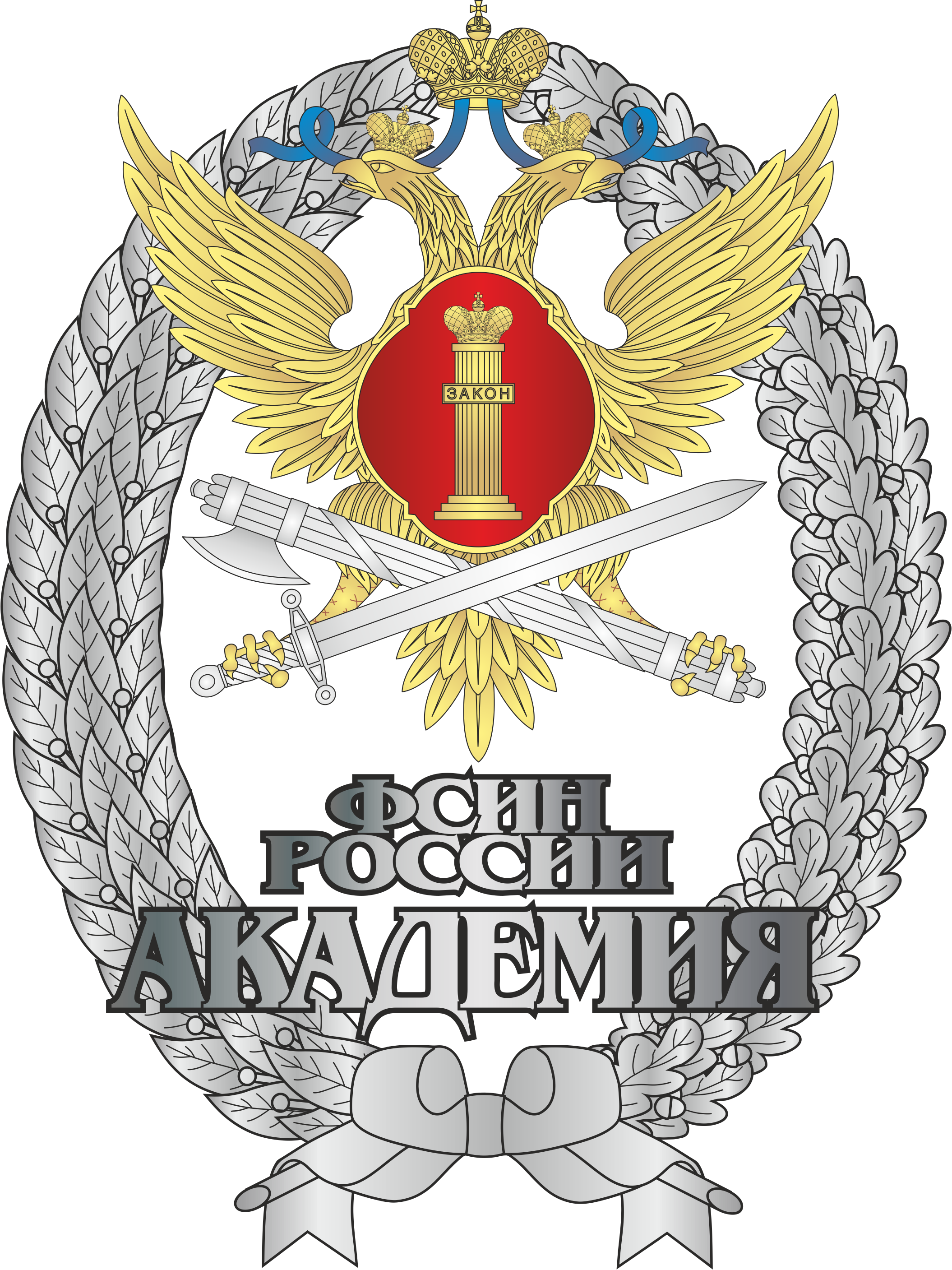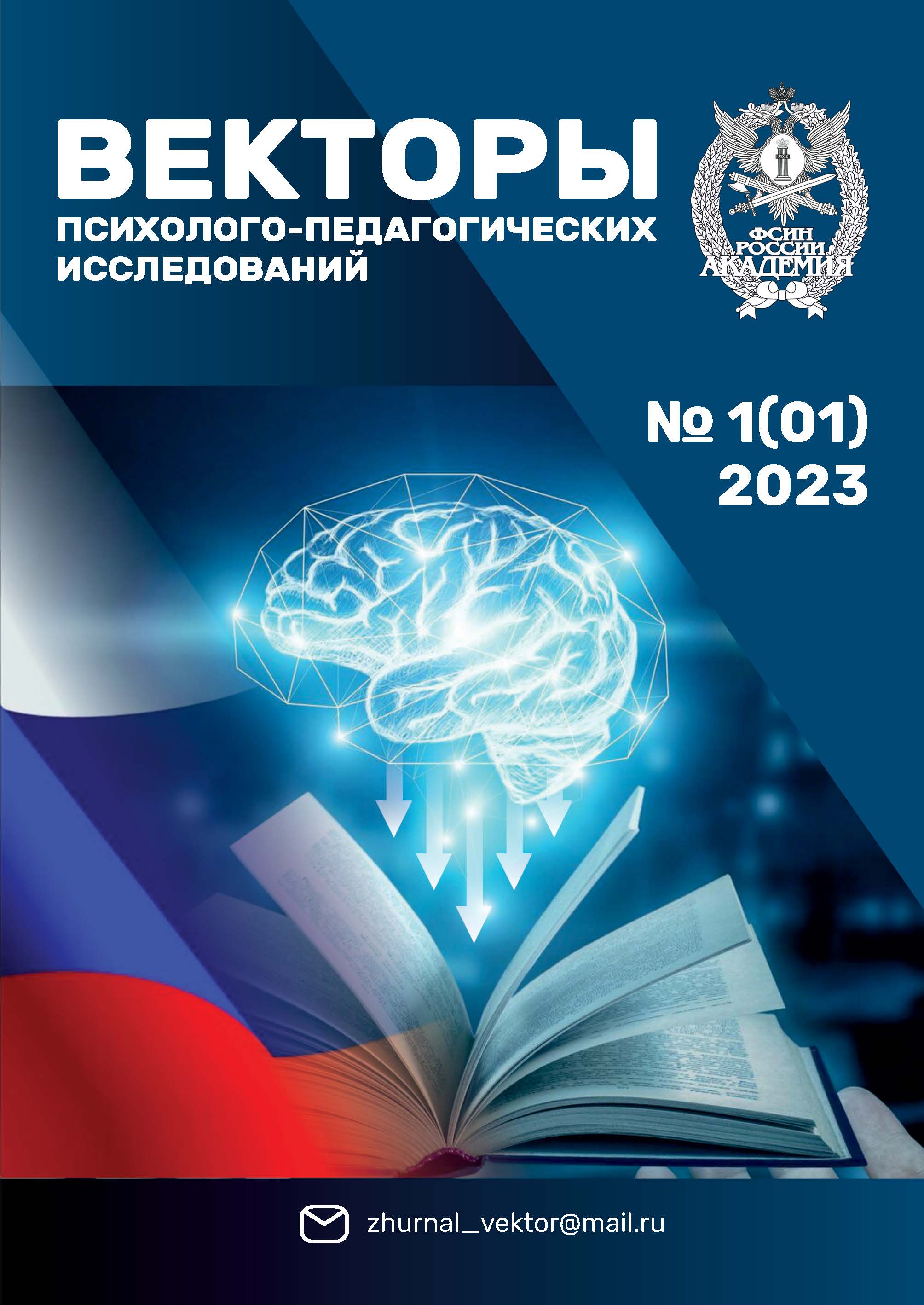Ryazan, Russian Federation
Ryazan, Russian Federation
UDC 343.825
The article examines the pedagogical conditions that favorably affect the development of convicts' readiness for work. The purpose of the study was to create optimal conditions for the formation of convicts' readiness for work not only in a correctional institution, but also after release from prison. A sample was used, including 75 convicts (men) employed at the production site of Correctional Colony No. 1 of the Federal Penitentiary Service of Russia in the Tula region. Based on the analysis of the survey results and data obtained using the psychological techniques "Morphological test of life values" and "Scale of convicts' attitude to work", conclusions were drawn about the effectiveness of the identified pedagogical conditions for the development of readiness of convicts for industrial activity.
labor education, socially useful work, pedagogical conditions, motivation, correction of convicts
1. Morphological test of life values V. F. Sopova, L. V. Karpushinoj n.d., viewed 25 June 2023, https://psytests.org/life/mtzc.html.
2. Barysheva, A. V. 2018, ‘The readiness of minors sentenced to imprisonment for professional self-determination as a problem of modern pedagogical science’, Bulletin of the Institute: crime, punishment, correction, iss. 2(42), pp. 133-140.
3. Bobrovik, A. P. & Ljubakov, A. A. 2018, ‘Physical readiness of employees of law enforcement agencies as an integral part of the general readiness for official and professional activity’, in S. M. Struganov (ed.), Improving the professional and physical training of cadets, students of educational organizations and employees of law enforcement agencies: collection of articles of the XX International Scientific and Practical Conference, Irkutsk, June 14-15, 2018, pp. 32-35, East Siberian Institute of the Ministry of Internal Affairs of Russia, Irkutsk.
4. Zhemerikina, Ju. I. & Shnajder, V. F. 2021, ‘Motivational and emotional readiness as components of students’ psychological readiness for future professional activity', The Matrix of scientific Knowledge, iss. 11-1, pp. 286-293.
5. Kiselev, M. V. 2020, ‘On the issue of educational impact on persons serving criminal sentences’, in The penal enforcement system: pedagogy, psychology and law : materials of the All-Russian Scientific and Practical Conference, Tomsk, November 19-20, 2020, vol. 8, pp. 16-19, Tomsk Institute for Advanced Training of Employees of the FPS of Russia, Tomsk.
6. Kuzina, E. V. 2023, ‘On the issue of the effectiveness of the application of certain incentive measures to convicts deprived of liberty’, Trends in the development of science and education, iss. 95-3, pp. 135-138.
7. Len'kov, S. L., Rubcova, N. E. & Aleksandrov, B. V. 2020, ‘The scale of convicts' attitude to work (SHOOT)’, Psychology and Law, vol. 10, iss. 2, pp. 223-239.
8. Makarenko, A. S. 1958, Writings, in 7vols, vol. 5, Moscow.
9. Nazarov, O. Ju. 2022, ‘Psychological and pedagogical features of labor education of convicts’, Scientific notes of the P. F. Lesgaft University, iss. 10(212), pp. 292-294.
10. Ponomarev, S. B. 2020, ‘Prison subculture from the point of view of the theory of systems’, Bulletin of the penal enforcement system, iss. 1(212), pp. 38-43.
11. Reber, A. 2001, A large explanatory psychological dictionary, Vecher, vol. 1, Moscow.
12. Simonova, E. V. & Ponomareva, G. V. 2020, ‘Representations of convicted citizens on the organization of education in institutions of the Russian penitentiary system’, in I. I. Pavlov (ed.), Problems of management in socio-humanitarian, economic and technical systems: The eighth annual collection of scientific papers of teachers, graduate students, undergraduates, students of the Faculty of Management and Social Communications TvGTY, in 2 vols, vol. 2, pp. 139-144, Tver State Technical University,Tver'.








